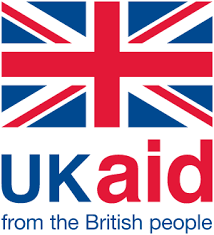Location
The Foreign, Commonwealth and Development Office (FCDO) pursuseds national interests and project the UK as a force for good in the world. We promote the interests of British citizens, safeguard the UK’s security, defend our values, reduce poverty and tackle global challenges with our international partners.
Members:
Resources
Displaying 151 - 155 of 228Colombia Land Administration Support Multi-Donor Trust Fund (CDEL)
General
This activity (Colombia Land Administration Support Multi-Donor Trust Fund (CDEL)) is a component of Colombia: Forests, Communities & Sustainable Growth (Territorios Forestales Sostenibles) reported by FCDO, with a funding type of 109 - Multilateral organisation and a budget of £28,695,504.This project benefits COLOMBIA.And works in the following sector(s): Forestry policy and administrative management.
Agri-enterprise in sunflower growing for women heads of families - climate chang
General
After decades of civil war, people in much of northern Uganda are returning home. Many are widows or orphans, with no experience of farming from a life in refugee camps. While small scale farming may feed the family, it is not enough to make significant income without help. This project works with groups of women and orphans to come together growing sunflower for sale, alongside their traditional crops. It also ensures that land ownership is defined, and works to link the groups to markets, increasing income for education, health and care for those with HIV/AIDS. The project is run through a well established Ugandan organisation. While the main programme focuses on enterprise, the climate element will allow expansion to cover wider environmental understanding and significantly reduce the risks of climate change. By increasing the range of products the project will increase the potential for profit, and also reduce vulnerability. A range of tree crops will be introduced to fix nitrogen, retain rain and reduce erosion, increase flowers for bees and provide organic inputs. Each of the 600 families will be provided with goats – these will be primarily for manure; and with bees for honey and pollination. Training and equipment will be provided, and as these replicate, offspring will be passed to other project members. A full time environmental officer will train and support a team of village level volunteers to provide support and information. This will be backed up with radio programmes and an information centre, from which community information days will be run. These inputs will support the farmers to use organic and non-destructive farming methods, and to reduce their vulnerability to unpredictable and extreme weather. Additional climate funding for this project will enable the UK and African partners to implement less vulnerable rural development projects. In this case, it will ensure that new farmers – returning from refugee camps – will learn how to adapt their farming to reduce risks. This is particularly important as their current project focuses on one crop. Additional funding will bring livestock and bees into the project, and help them (and their communities) to grow a range of new crops better able to withstand unpredictable weather.
Freetown Urban Slums Initiative
General
Freetown slums are in a deplorable state with many areas devoid of piped water and any form of improved sanitation. Most houses are made of temporary building materials and settlements are vulnerable to flooding. Cholera is a recurrent hazard. Comic Relief funded a previous slum project (2008 – 2012) supporting communities in three slums to improve their quality of life. However, the need to make additional improvements within these settlements and to help others, still exists. This follow-on project intends to support young people, petty traders (particularly women) and other disadvantaged people living in 8 slums in Freetown. The project will provide vocational training and apprenticeships, affordable micro-credit loans and improvement of literacy, business and money management skills. It will also improve access to basic services, including water and improved drainage and provide hygiene training. The capacity of local community based organisations (CBOs) will be strengthened and support provided to improve advocacy skills, enhancing their ability to hold government to account. As a result there will be a healthier environment and increased incomes, especially for women, young people and other marginalised groups, leading to a better quality of life in the slums. In addition the project will promote advocacy relating to streamlining of land tenure systems and seek to influence planning and national housing policy.
Improving pastoralist girls'' educational aspirations and attainment (Tanzania)
General
Pastoralist communities in Tanzania are amongst the most marginalised in the country, and face widespread discrimination because their land management system is not recognised as viable by the government. Primary education is compulsory in the country, but pastoralists, especially girls, have little access to quality education. 95% of girls attend primary school nationally, but only 44% of girls are in primary school in the Ngorogoro district of Tanzania. Girls' enrolment is lower than boys, drop-out rates higher and they do not perform as well academically. Education quality is poor, many children are not taught by qualified teachers. There are few female role models that equip girls to face the challenge of staying in school and thriving there. This application is part of a wider education programme that aims to increase enrolment, retention and performance of pastoralist girls in school. By project end, there will be more girls attending school than ever before, affecting the lives of 6,455 girls.
ANGOLA, Land Tenure - Capacitação sobre acesso aos direitos da terra e sua gestão sustentável no planalto cent
General
The project is aimed at increasing access to land and land tenure rights as well as promoting land management and use that leads to economic, environmental, social and cultural sustainable development of communities and most vulnerable groups in Angola


